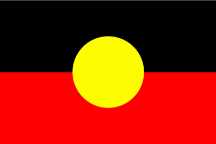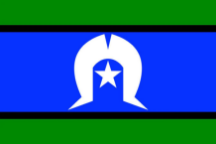Coaching can be an overwhelming job sometimes, and a lot of planning and organisation can be required for coaches to be successful. That is why Netball Queensland have curated the below list of resources, some created internally by our experienced coaching staff, some shared from Netball Australia and other credible sources. We hope that these resources make your job as a coach easier!
Coaching Resources
Netball Queensland Resources
Signing up to coach a netball team for the very first time can be extremely daunting and overwhelming. No matter how much you already know about netball, Netball Queensland are here to support and guide you as you start your coaching journey.
This is a guide to coaching players with a disability. The guide is designed to reiterate the core coaching principles and provide you with the confidence to coach players with a disability. Many coaches think that there is a distinct set of skills required to coach players with a disability. This is not the case, the core coaching principles along with a positive attitude and inclusive mindset will ensure that coaches create a safe, welcoming and inclusive environment
Netball Queensland recognises the important role our community netball coaches have on the development of young people both on and off the netball court. The Community Coach Philosophy is designed to help coaches nurture and support well-rounded and happy netballers by providing a framework they can use to guide their decision-making. At the participation level where the success of a coach is not governed by a win-loss ratio, this document aims to provide community coaches with the metrics for which they can measure their own success.
This document aims to make delivering effective feedback easier for coaches by outlining how to use the Good, Better, How framework. While it is contextualised by Junior State Age, the concepts and examples are applicable to all netball coaching.
Within the Coaching Pathway graphic, you can see the 6-tier accreditation pathway from Netball Australia, as well as the general guidelines for the competition level that accreditation prepares coaches for as it relates to netball in Queensland. The pathway on the right-hand side highlights a few of the many other learning and education opportunities coaches might undertake to improve their abilities, gain new skills and knowledge, and grow as well-rounded coaches.
This document outlines the skills and attributes Netball Queensland uses to rank the athletes in the 2023 Emerging Pathways Program. Community coaches can use this document as a guideline when season and session planning to help ensure they are teaching their athletes the skills necessary for emerging athletes to be successful.
This resource was developed for Junior State Age in 2023 as an assessment tool for Netball Queensland Coach Developers providing feedback to Junior State Age Coaches on their feedback delivery to athletes. At the request of these coaches, this form has been made available as a resource for the Netball Queensland Coaching Community.
This manual is the perfect starting point for people who are starting their coaching journey for the very first time.
Coaching Templates
Including both coloured, black and white (printer friendly) & blank versions.
This folder will contain a range of templates to help you stay organised throughout your netball season. Templates include player profiles, season plans, training sessions, court time trackers, game reflections, etc.
Netball Australia Resources
This framework was updated most recently in 2022. It outlines the accreditation system for netball coaches in Australia, including the eligibility requirements and competency criteria for each level.
This document was developed in response to data from a 2014 community coach survey and outlines the purpose of coaches in netball in Australia.
Knees and ankles are the most injured body parts of netballers and most of these injuries occur when landing. Injury to the Anterior Cruciate Ligament (ACL) in the knee represents approximately a quarter of all serious netball injuries each year (Netball Australia National Insurance Data). The Knee Program was developed by Netball Australia as a preventative measure for these serious, season-ending injuries. Regardless of the level you are coaching, the Knee Program should be implemented into your regular training.
This document from Netball Australia outlines the key points coaches should consider when demonstrating a new skill to their players.
This framework provides a national consistency in standard and appropriate skill development and progression across the Netball Australia pathway by outlining the appropriate sequence of skills to teach players across five learning stages – Foundation, Development, Intermediate, Advanced and Elite – each one representing a progressive increase in skill and complexity for the developing player.
This checklist from Netball Australia explains eight things beginner coaches need to keep in mind when delivering training sessions.
This resource outlines a few simple steps coaches can take to make sure their players stay motivated and engaged.
External Resources
The rules of netball are governed by the International Netball Federation. You can purchase physical rule books through your Netball Learning account, download the INF Netball Rules app for iOS and Android, or download the PDF of the rules.
This one-page infographic from Sport Australia outlines why physical literacy means and how coaches can incorporate physical literacy skills into training sessions.
This coaching manual from the International Netball Federation focuses on the essential netball coaching skills and is an excellent starting point for new coaches.
Sport Inclusion Australia are an organisation dedicated to ensuring sport is a safe and inclusive environment for all. Visit their website to find more resources. Coaches might find the following fact sheet regarding coaching athletes with intellectual disabilities helpful.
The coaching page on the Special Olympics Australia website has a plethora of coaching resources for coaching athletes with special needs.
Play by the Rules offer a variety of sport integrity training resources, including a course on inclusion coaching.
Pride in Sport is a sporting inclusion program designed to assist all levels of sporting organisations and workforces with inclusion around diverse sexualities and genders. There is a plethora of resources available under the Resources & Initiatives tab.
Yulunga means playing in the language of the Kamilaroi (Gamori) people of northern-western New South Wales. These games are a selection of games and activities from First Nations peoples across Australia and the Torres Strait. Some of these games would be perfect training warm up games, and some can be incorporated into skill development and progression.

